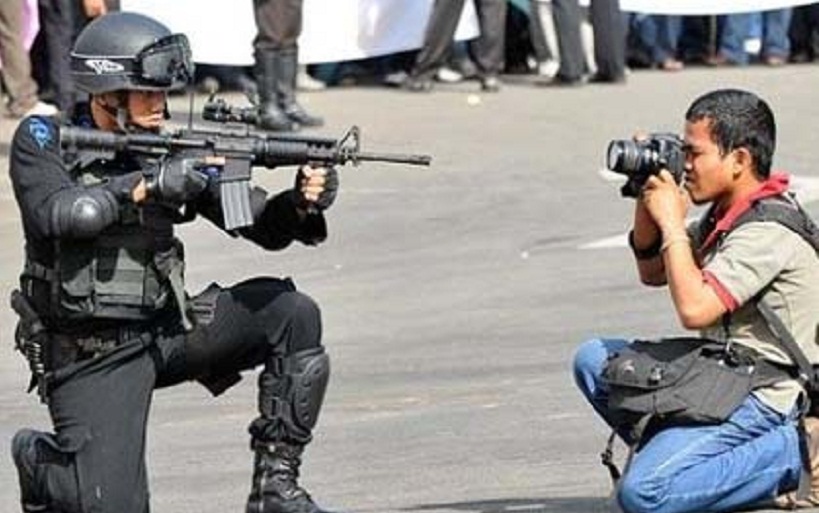Afghanistan remains one of the most insecure and poorest countries in Asia where journalists are facing constant threats. Criminals in country are enjoying impunity and they are beyond the reach of judicial and law enforcement organizations. The violators are walking without any fear as they know their strength and about weakness of the government. In many areas including the capital city, Kabul, they are part of the current system. Those who are outside of the power domain have been emboldened by their achievements in the war against government. Therefore, justice has become a dream for Afghan newsmen and women. Scores of journalists have been attacked, killed and threatened since ouster of the Taliban from power but the democratic government failed to arrest culprits even in five percent cases.
Judicial system and state machinery work fast when the attacks are reported by foreigners. However, there are only statements when local journalists come under attack. It seems that there are two different systems—one for local and another for foreigners. The system for locals is too fragile to pin hopes on. At a time when long-term economic development remains a daunting challenge, freedom of expression has become a slogan for the high-ranking officials to garner media support or soothe the pain of dying independent journalism in the country.
Large number of daily, weekly, and monthly newspapers and magazines disappeared from the scene after establishment of the National Unity Government (NUG). They were killed by the artificial economy crisis. It seems, as indicated by the statements of some officials, that the government is deliberately doing so. The purpose behind this is to have a few media organizations to deal with. As criticism on the unity government is on peak, the leaders want to push most of independent media outlets towards crisis. They are successful because many media organizations announced downsizing and some are on the verge of total collapse.
Media outlets that are supported by the government officials or influential people have nourished well in this period of great uncertainty. Miscalculations of the leaders would have serious setbacks. Weak independent media would present a weak stance of the country to the international community. Insurgents will benefit from this opportunity which has been provided by the naïve policymakers. Inattention towards increase in violence against journalist or closure of media houses would not benefit the system which is inhibited by endemic corruption and high income inequality.
Amid this discrimination, growing violence against journalists is the major problem that local media organization is facing. Owners, editors and reporters of independent media outlets are not feeling safe. They have knocked the doors of relevant government institutions repeatedly but found no help. There is wide trust deficit between the government and local media. If the deficit was not bridged it could result in serious problems.
 Afghanistan Times
Afghanistan Times




